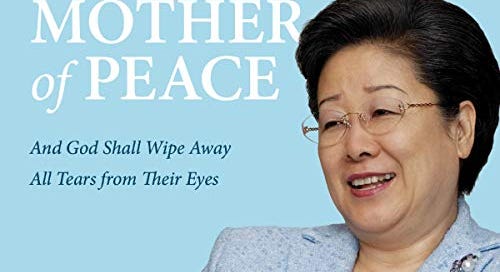“It is dark now,” my mother whispered. “Let’s go.” It was the autumn of 1948, and we left our home in the middle of the night, my mother carrying me on her back and my grandmother carrying a couple of bundles. It is quite a distance from Anju to the 38th parallel, 200 kilometers (125 miles) as the crow flies. We had to walk for days and days to cover that distance. And we took every step on that journey with anxiety, fearing for our lives. At night we slept in empty houses, and when the morning dew fell we would start again. Our shoes were flimsy and the roads were rough, and so our feet ached from the very start. What was hardest to endure was the hunger. We would knock on the doors of shabby cottages and give them something from our bundles in exchange for food, which was usually a cup of boiled barley and rice. Undergoing such hardships, we walked and walked endlessly southward. The communists had plowed the fields and broken up the shoulders of roads to make such a journey even more difficult. Our feet sank into mud as we walked through the fields, and we shivered all over with cold. Still, we continued on, looking only at the starlight. North Korean People’s Army soldiers were blocking the 38th parallel, and they easily captured my mother, grandmother, and me. They locked us up in a shed, together with other frightened people who had the same intention as we did. The soldiers were rough with the men, but they did not treat women and children harshly. One day, one of the adults asked me to take food to the soldiers standing watch. Though my heart trembled inside, I forced a smile and handed the food to the soldiers. After I had done so several times, the soldiers’ hearts softened, and one night they set my family free. They instructed us to return to our hometown, and we walked out of their sight in that direction. And then, as we stood at the crossroads between life and death, night fell, and we waited, and Heaven sent a young man to guide us on the path of life. Under the cover of darkness, we followed him across the 38th parallel. As we crossed, I was so happy that I said to Mother, “We don’t have to sing songs praising Kim Il Sung anymore, do we? I will sing a song from the southern part of Korea!” This too was God’s intervention, for on the South Korean side soldiers also were keeping a strict watch. I sang a few lines of the song with a joyous heart. At that moment, we heard a rustling in the bushes in front of us. We were surprised and stood frozen in place, fearful that we would be captured by North Korean soldiers once again. Soldiers emerged from the bushes—South Koreans. At the sight of them, we almost wilted in relief. Those South Korean soldiers told us that they had heard us as we approached and had been about to fire upon us. When they heard the voice of a child singing, they had lowered their weapons. They welcomed us and comforted us.
In the United States, the waters off the coast of Gloucester, Massachusetts, are famous for tuna fishing. In the 1980s, for weeks on end, my husband and I would board the New Hope before dawn, go out into seas that even experienced sailors feared, and wrestle with tuna so huge they dwarfed the adults onboard.
Besides Gloucester and Kodiak, we chose the Amazon and Paraguay Rivers of Latin America, Hawaii and Norfolk in the United States and Yeosu in Korea as the centers for the ocean providence. In addition to training young people, we invested in projects tied to the rivers and the oceans. One project in Uruguay was to create a high-protein powder from the abundant krill shrimp. When mixed with other nutritious foods, it can introduce valuable nutrients into people’s diets in times of food shortage.
~ From: “Mother of Peace”




